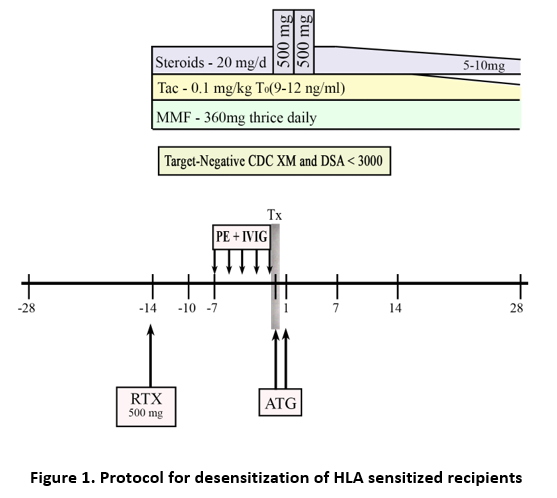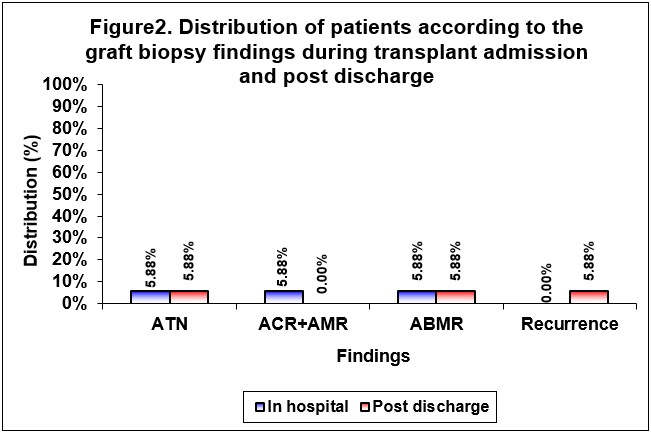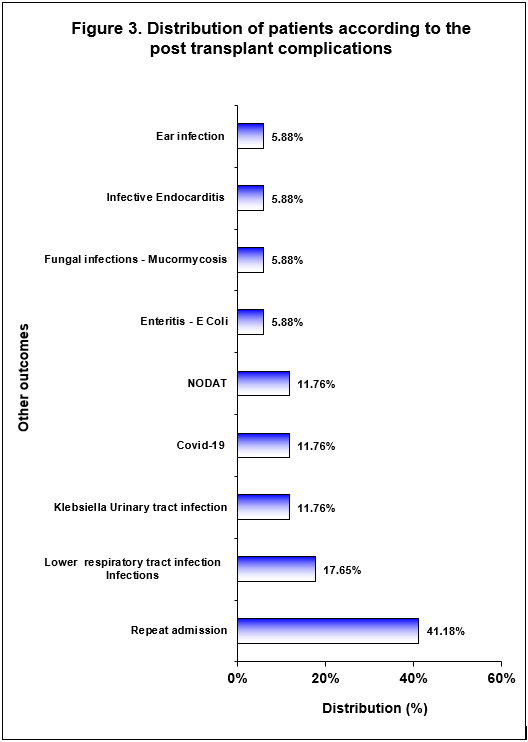Short term outcomes of kidney transplantation in HLA sensitized recipients: a single-center study from Eastern India
Joseph Lalhmachhuana1, Deepak Shankar Ray1.
1Nephrology and Renal Transplantation, Rabindranath Tagore International Institute of Cardiac Sciences, Kolkata, India
Introduction: Kidney transplantation is acknowledged as a major advance of modern medicine which provides high-quality life years to patients with irreversible kidney failure worldwide. However, ABO and HLA incompatibility remain the two largest barriers to optimal utilization of organs. Sensitization to HLA is the presence of antibody (usually IgG) to HLA in the recipient's serum which can occur after exposure to antigens as a consequence of sensitizing events like blood transfusion, pregnancy or organ transplant. The present study was aimed to investigate patient and graft survival at one year in HLA sensitized living-donor kidney transplant recipients who underwent desensitization and to determine the incidence of complications including rejection and post-transplant infections.
Method: The study was conducted at NH Rabindranath Tagore International Institute of Cardiac Sciences (NH-RTIICS), Kolkata, a tertiary level multispecialty hospital in the city of Kolkata, West Bengal. It was a prospective, observational study. Inclusion criteria were pre-desensitization findings of CDC cross match positivity up to 21% to 40%,Flow Cytometry crossmatch positivity, DSA and/or SAB positivity. Deceased donor transplants and multiorgan transplant recipients were excluded. A total of 17 HLA sensitized living-donor kidney transplant recipients who underwent desensitization according to institutional protocol were enrolled. Each patient was followed up for one year or till mortality, if earlier.

Result: Death censored graft survival was 100%. Patient survival was 76.47%. The mean serum creatinine among survivors at 12 months was 1.21±0.62 mg/dl and mean eGFR was 68.86±20.46 mL/min/1.73m2 . All the survivors at one year had functioning graft. Among the three patients who underwent graft biopsy in the immediate post-transplant period before discharge, ATN, ACR+ABMR and ABMR were noted in one case each (5.88%). Post discharge, three patients required graft biopsy, which showed ATN, ABMR and recurrence in one case each (5.88%). The overall incidence of biopsy proven early ABMR (i.e., within one year) was 17.65%.

Among other complications, NODAT was found in 11.76%, 8 patients (47.05%) developed infections within 12 months follow up and post-transplant repeat admission was noted in 7 patients (41.18%).

Conclusion: Overall, the present study showed patient survival of 76.47% and death censored graft survival of 100% at one year. The incidence of biopsy proven early rejection (within one year) was 17.65%. There was no significant change in allograft function among the survivors as measured as eGFR at one year. However, renal transplantation in HLA sensitized recipients is associated with higher rate of infections leading to hospitalization within one year post transplant.

right-click to download
